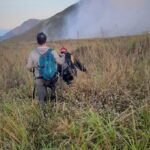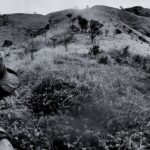Hiking is an exhilarating outdoor activity that allows you to connect with nature, explore new terrains, and challenge yourself physically. Proper hydration is crucial for a safe and enjoyable hiking experience. Understanding how to calculate the amount of water you need on a hike is essential to stay hydrated and avoid dehydration-related issues. In this article, we will explore the factors to consider when determining your water needs based on distance, elevation gain, and environmental conditions.
FACTORS TO CONSIDER
- Baseline Hydration Needs: Everyone has a baseline level of hydration that they need on a daily basis. On average, a person having sedentary to moderate activity should consume about 8 cups (2 liters) of water per day to stay adequately hydrated (This includes water from beverages and moisture from food). This baseline varies from person to person, so it's important to know your individual requirements.
- Distance: The length of your walk plays a significant role in determining your water needs. As a general guideline, aim to drink 0.5 to 1 liter (16 to 32 ounces) of water per 3 to 5 kilometers walking distance on a relatively flat ground. For longer walks, you may need to carry more water or plan for water sources along the trail.
- Elevation Gain: Elevation gain can impact your water needs due to the increased physical effort required at higher altitudes. As you ascend, your body works harder, and you may sweat more. Consider adding an extra 0.5 to 1 liter (16 to 32 ounces) of water for every 1000-meter elevation gain.
- Environmental Conditions: Environmental factors such as temperature and humidity can significantly affect your water requirements. Hot and dry conditions will increase your sweating rate, leading to greater water loss. In such conditions, you may need to drink more water to stay hydrated. Conversely, cooler and more humid conditions may require less water intake.
- Personal Factors: Individual factors also play a role in determining your hydration needs. Factors like your body size, metabolism, and fitness level can affect how much you sweat and how quickly you become dehydrated. Be mindful of your own body and its signals for thirst and hydration.
- Terrain and Intensity: The difficulty of the terrain and the intensity of your hike can influence your water needs. Steep and challenging terrain, as well as bushwhacking, may lead to increased exertion, causing you to sweat more and require more water.

CALCULATING YOUR WATER NEEDS
To calculate your estimated water needs for a hike, follow these steps:
- Start with your baseline hydration needs, typically around 2 liters (64 ounces) per day. This includes the water from beverages and moisture from food.
- Add extra water to account for the distance. Aim for 0.5 to 1 liter (16 to 32 ounces) of water for every 3 to 5 kilometers of hiking on a relatively flat ground.
- Add extra water to account for the elevation gain. Aim for 0.5 to 1 liter (16 to 32 ounces) for every 1000-meter elevation gain.
- Factor in the environmental conditions. Hot and dry conditions may require more water, while cooler conditions may require less.
- Pay attention to your body. Listen to your thirst cues and adjust your water intake accordingly.
Example:
Estimate the water requirement for a moderately fit individual hiking from the Olango trailhead to the summit of Mount Guiting-Guiting.

CALCULATION:
- Baseline hydration needs = 2 liters
- Distance of 8.61km = 1 to 2 liters
- Elevation gain of 2,100 = 1 to 2 liters
TOTAL HYDRATION NEEDS = 4 to 6 liters
Notes:
- This is just a general guideline, and individual hydration needs can vary significantly. It's important to listen to your body, stay hydrated, and adjust your water intake accordingly during the hike.
- The calculation covers only the ascent (from trailhead to the summit)
- Distance and elevation gain may be rounded off for easier estimates.
- Add 0.5 to 1 liter of water to the total hydration needs if the weather is hot and the trail lacks tree cover.
- Add 0.5 to 1 liter to the total hydration needs if the terrain is steep.
- Add 0.5 to 1 liter to the total hydration needs in case of unexpected delays or emergencies.








